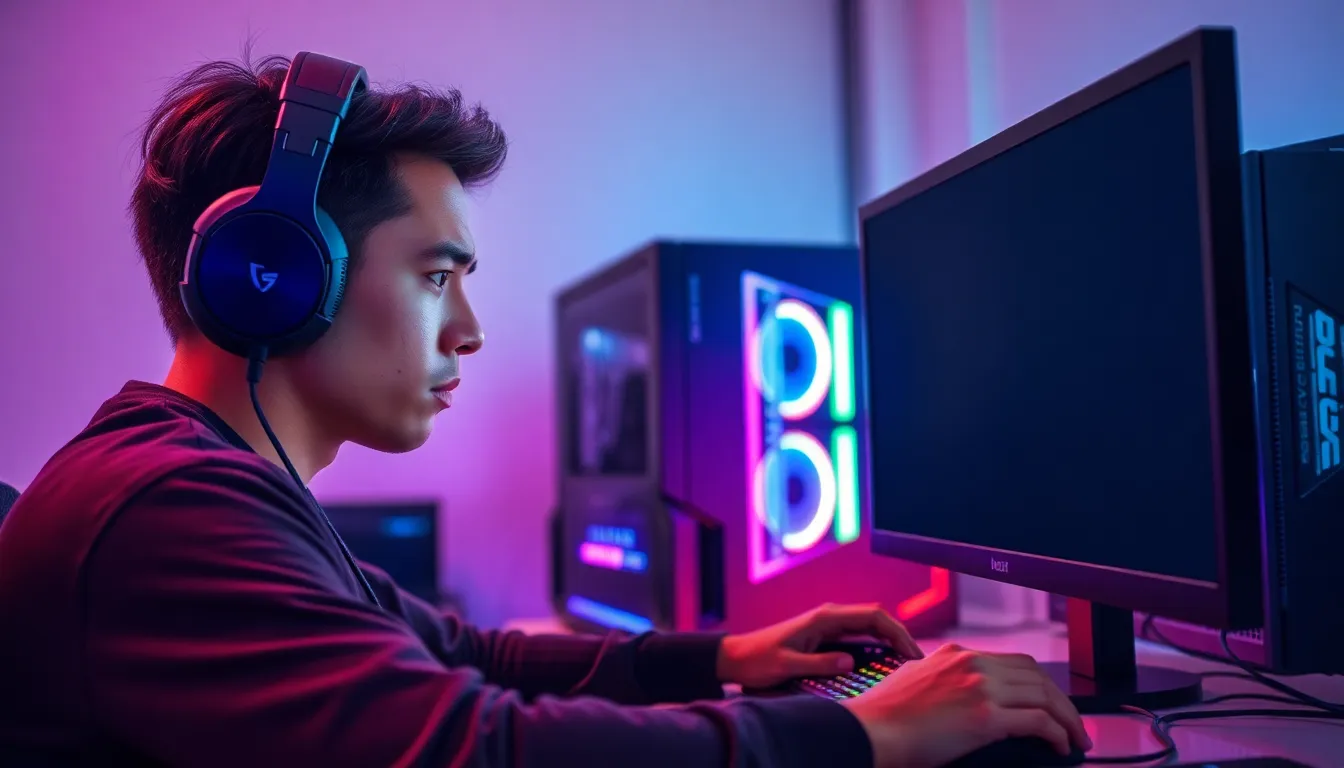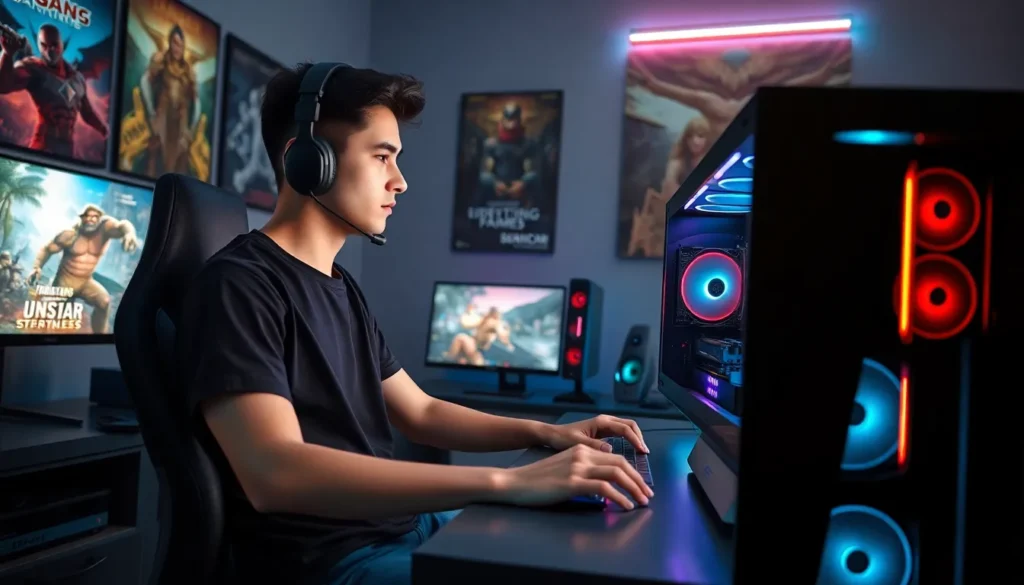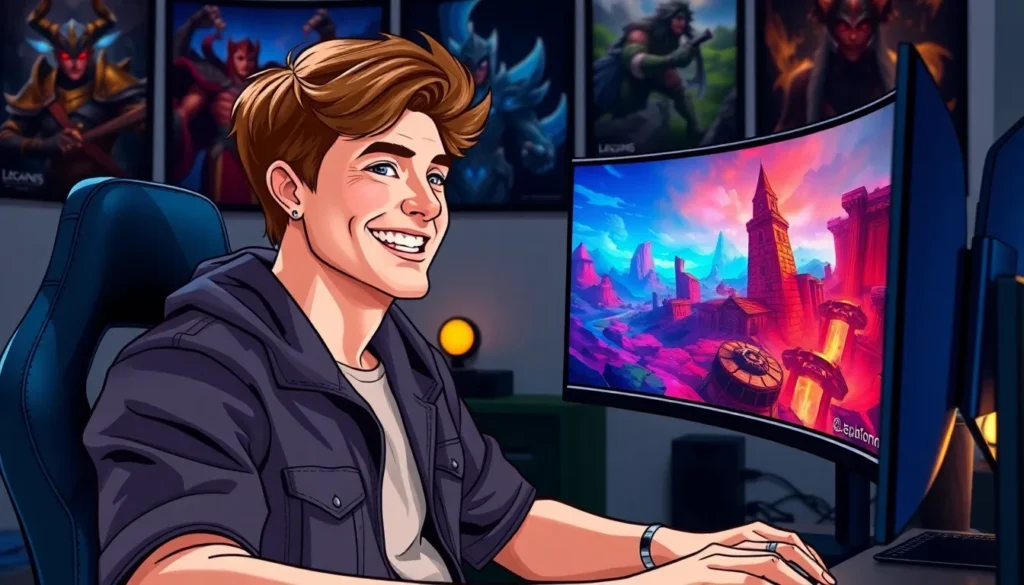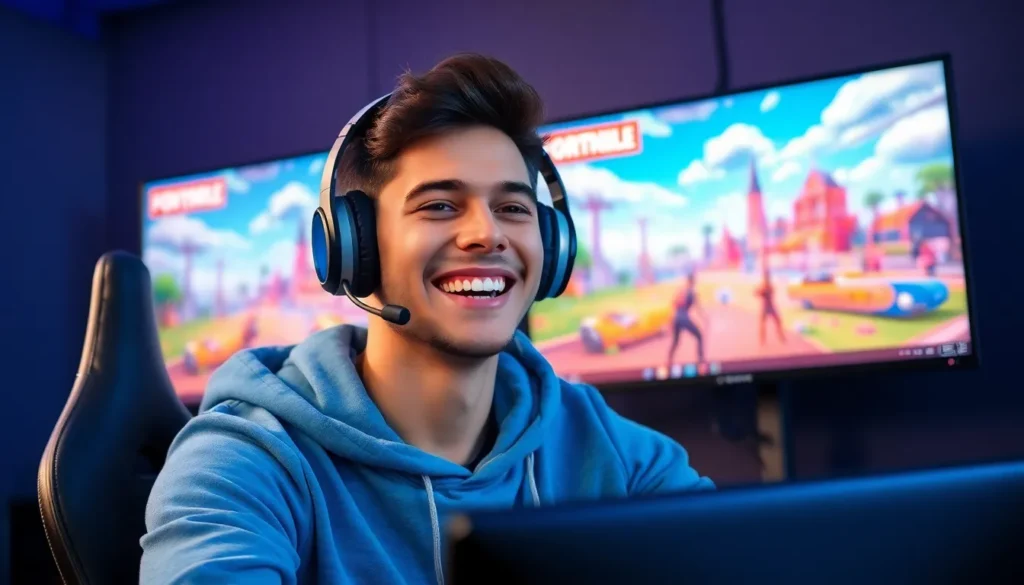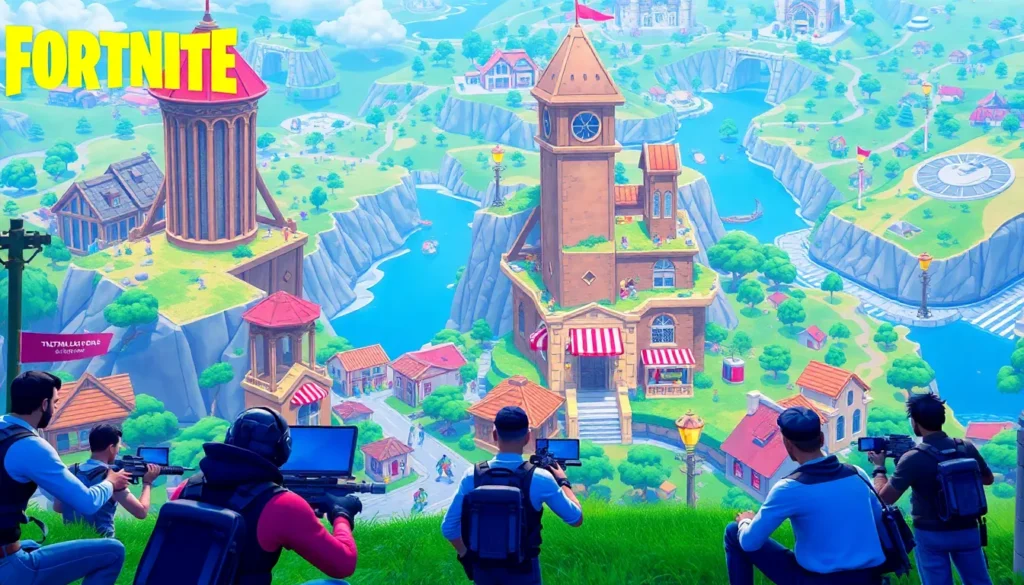Picture this: you’re deep in a gaming marathon, adrenaline pumping, and just as you’re about to make that epic play, your PC suddenly shuts off. It’s like the universe decided to hit the pause button on your victory. Frustrating, right? This unexpected blackout can turn a thrilling gaming session into a head-scratching mystery.
Table of Contents
ToggleCommon Reasons for PC Shutting Off While Gaming
Several factors contribute to a PC shutting off during gaming. Identifying these issues helps in troubleshooting and enhancing gaming experience.
Overheating Issues
Overheating often leads to system shutdowns. Components like the CPU and GPU generate significant heat while gaming. An inadequate cooling system fails to dissipate this heat effectively. Dust accumulation in fans and heatsinks can block airflow. Using thermal paste on CPUs helps maintain efficient heat transfer. Monitoring temperatures using software can prevent overheating.
Power Supply Problems
Power supply issues are a common cause of sudden shutdowns. An insufficient wattage rating may not support high-performance components during demanding tasks. Faulty cables or connections can interrupt power delivery. Overloading the power supply with too many components strains its capability. Checking for stability in power delivery is crucial. Testing with a reliable power supply unit often resolves shutdown issues.
Hardware Failures
Hardware failures can suddenly terminate a gaming session. Failing components like RAM, GPUs, or motherboards disrupt normal operation. Random crashes may signify impending hardware breakdown. Inspecting for visible damage can provide clues to the issue. Running diagnostic tools helps identify malfunctioning parts. Replacing failing components ensures a stable gaming experience.
Diagnosing the Problem
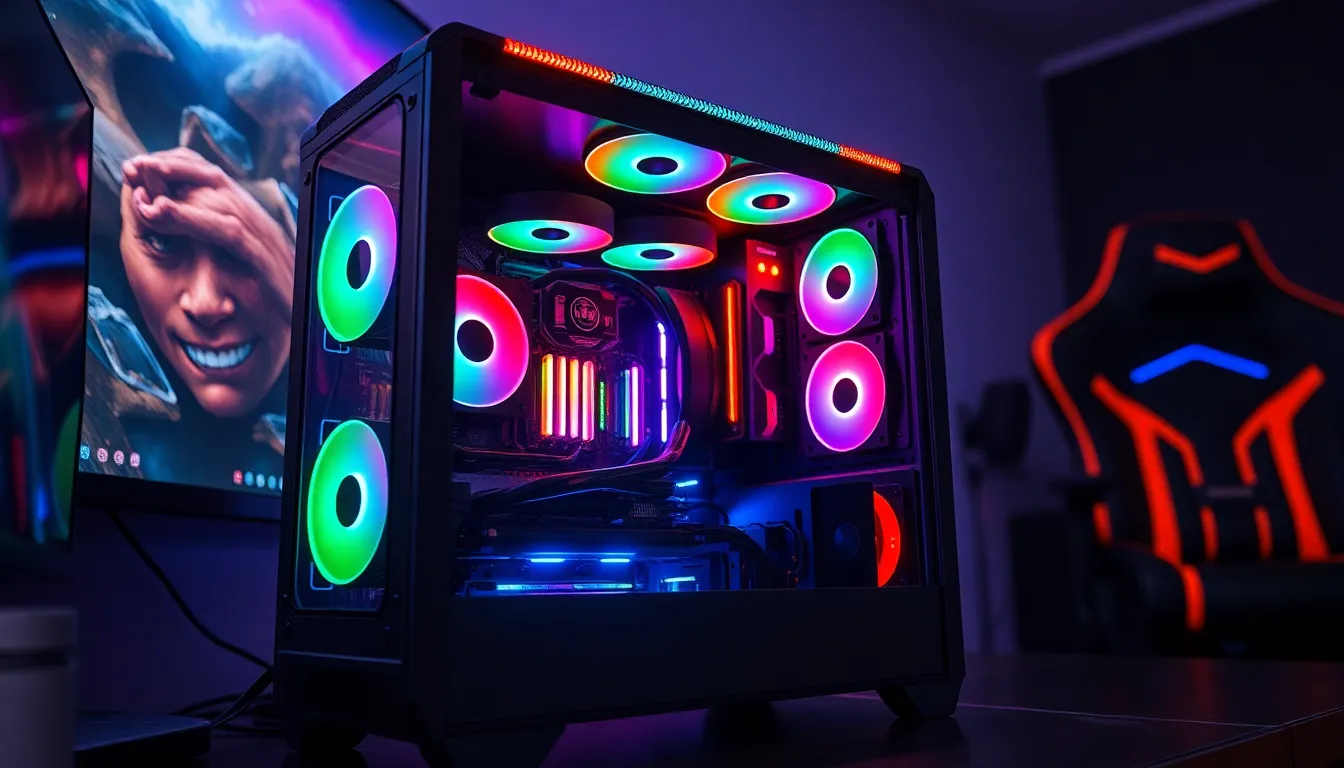
Unexpected PC shutdowns during gaming often signal underlying issues. Addressing these problems requires careful examination of specific aspects.
Checking Temperature Readings
Monitor CPU and GPU temperatures using software like HWMonitor or MSI Afterburner. Ideal operating temperatures for CPUs generally range from 30 to 70 degrees Celsius under load. GPUs should stay below 80 degrees Celsius while gaming. Inadequate cooling can lead to thermal throttling or shutdowns, so ensure that fans are operational and dust-free. Clean the heatsinks and ensure proper airflow within the case. Using high-quality thermal paste on the CPU can also enhance heat dissipation.
Monitoring Power Supply Performance
Inspect the power supply unit (PSU) to rule out voltage issues. Ensure it provides sufficient wattage for all components, especially during peak load conditions. Common wattage requirements for gaming systems range from 500 to 850 watts, depending on installed hardware. Use a PSU tester to verify that the unit delivers stable voltage levels across all rails. Look for signs of wear, like bulging capacitors or unusual noises, as these indicate potential failure. Replacing a faulty PSU can restore stable power during demanding gaming sessions.
Testing Hardware Components
Evaluate all hardware components to identify potential failures. Start by running memory diagnostics like Windows Memory Diagnostic or MemTest86 to check the integrity of RAM. Next, stress test the CPU and GPU using software like Prime95 or FurMark to assess stability under heavy load. Unresponsive or crashing symptoms often indicate failing components. Connecting components one at a time allows for isolating the problem. If necessary, consider replacement of faulty parts, as this can significantly improve performance and reliability during gaming.
Solutions to Prevent PC Shutdown During Gaming
Addressing the issue of sudden PC shutdowns during gaming involves a combination of effective solutions. Players can implement several strategies to ensure uninterrupted gaming sessions.
Improving Cooling Systems
Effective cooling systems maintain performance during gaming. Overheating typically results from poor airflow and dust accumulation within the case. Cleaning dust from fans and heat sinks ensures seamless airflow. Installing additional case fans or upgrading existing fans enhances cooling performance significantly. Using liquid cooling systems offers a more efficient solution for temperature management. It’s crucial to regularly check thermal paste on CPUs and GPUs, as it impacts overall heat dissipation.
Upgrading the Power Supply Unit
Ensuring the power supply unit meets system demands proves essential. Most gaming systems require between 500 to 850 watts for optimal performance. Investing in a high-quality PSU guarantees stable voltage levels and sufficient wattage for components. Regularly checking for signs of wear, such as bulging capacitors, helps identify potential issues before they cause shutdowns. Compatible power supplies, certified for efficiency, minimize risks during gaming sessions.
Regular Hardware Maintenance
Conducting regular hardware maintenance strengthens system reliability. Running diagnostic tools to test RAM, CPU, and GPU can detect failures early. Cleaning internal components from dust and debris maintains optimal thermal performance. Updating drivers and BIOS improves compatibility and addresses potential bugs. Gamers should routinely monitor system performance and replace fragile parts to enhance durability and stability during gaming.
When to Seek Professional Help
Understanding when to seek professional help for a PC that shuts off while gaming is crucial for gamers. Certain signs indicate a more serious issue that requires expert intervention.
Signs You Need Expert Assistance
Unexplained shutdowns during gaming often suggest deeper problems. Frequent occurrences of overheating might indicate inadequate cooling systems or failing components. Moreover, if error messages appear or if the computer fails to boot consistently, this signifies a need for professional evaluation. Additionally, abnormal sounds, such as clicking or grinding, may indicate failing hardware. Finally, if testing and troubleshooting steps fail to resolve the issue, seeking expert assistance becomes essential.
What to Expect from a Professional Service
Expect thorough diagnostics to identify the root cause of shutdowns. Technicians generally check temperature readings, inspect power supply quality, and test hardware components. Most services also perform stress tests on critical elements, such as CPUs and GPUs. After diagnosis, professionals usually provide detailed reports outlining the necessary repairs or component replacements. Moreover, many offer preventative recommendations to improve overall system reliability. Engaging a professional provides assurance that the system receives specialized knowledge and care.
Experiencing unexpected shutdowns during gaming can be incredibly frustrating. By understanding the common causes and implementing effective troubleshooting strategies, gamers can significantly improve their experience. Regular maintenance and monitoring are crucial for keeping systems running smoothly. Whether it’s enhancing cooling systems or ensuring a reliable power supply, taking proactive measures can prevent interruptions during gameplay. When issues persist despite these efforts, seeking professional help can provide the expertise needed to resolve deeper problems. Prioritizing system health not only enhances performance but also ensures countless hours of uninterrupted gaming enjoyment.

